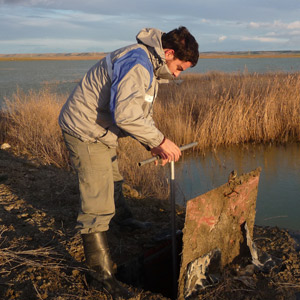CONTRIBUTION
Every year, over 20,000 people visit the La Nava lagoon in Palencia to observe geese, herons and many more bird species which are increasingly seen as a much-needed resource for the regional economy. This is just one of the achievements of Fundación Global Nature, which in its twenty-year life has restored 88 wetlands in autonomous communities throughout Spain, and unleashed their power as motors of local development. Other examples are the Guadiana wetlands in Toledo, Cuenca and Guadalajara, or Toledo’s Villacañas lagoons.
Wetlands are among the most biodiverse of habitats. Yet over the last century Spain lost as much as 60% of its existing stock. Fundación Global Nature, which this year celebrates its twentieth anniversary, has not only confronted the problem by working for the conservation of these ecosystems, but has also sought to integrate them within the way of life of local communities, “contributing to the economic development of rural areas and the raising of social awareness.” Through its efforts, more than 2,700 hectares of wetland have been restored, harboring around a score of vulnerable species.
Over 40% of the endangered species in Spain depend on wetlands at some point in their biological cycle. But despite this ecological and, also, economic importance – wetlands aid in the regulation of surface and underground water so impact on a long list of human activities – the country lost 60% of its wetlands in the course of the 20th century. Hence the priority that Fundación Global Nature has accorded to this kind of habitat since the time of its foundation.
Fundación Global Nature, which obtains around 70% of its funding from national and EU institutions like the European Commission and Spain’s Ministry of Agriculture, Food and the Environment, has intervened in 88 lagoon complexes taking in almost one hundred wetlands of varying type: highland lagoons, bogs, reservoirs, seasonal ponds, and coastal lakes and marshlands. Its work, which often involves purchasing the land destined for restoration, intersects with around ten zones designated Special Protection Areas for birdlife, Sites of Community Importance, or Wetlands of International Importance listed under the Ramsar Convention. It has also implemented improvements in five EU Priority Habitats and organized specific protection campaigns for some twenty species from the Spanish Catalogue of Endangered Species.
Global Nature has also sought to make wetlands a source of wealth for their respective regions by promoting responsible tourism.
The Foundation is now starting up a project in the Humedales de La Mancha, one of the country’s largest wetland systems. The aim is to restore over 1,760 hectares of wetland in the Alto Guadiana in the next three years, at a total investment of 2.6 million euros.

